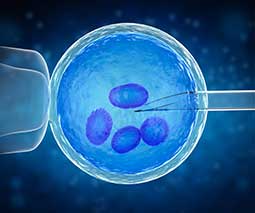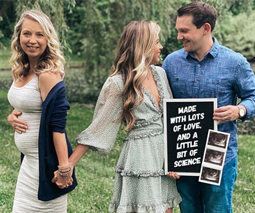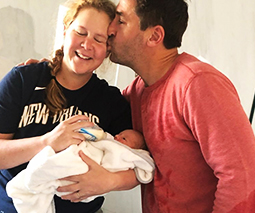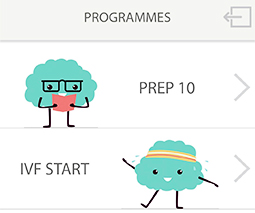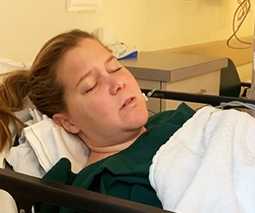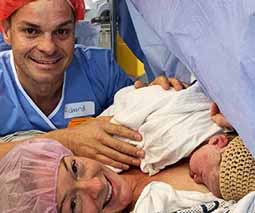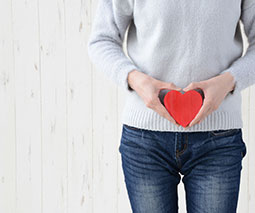10 IVF truths no one tells you about
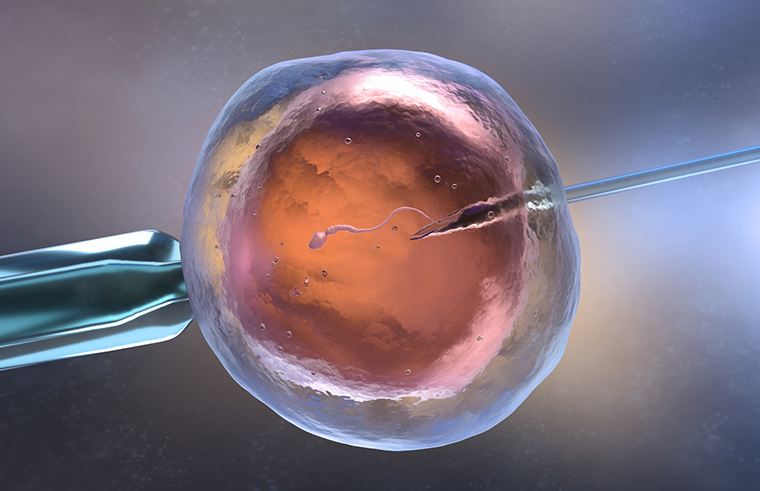
Little girls (and little boys) don’t dream of growing up and having their babies via IVF. But when nature doesn’t seem to be cooperating, IVF can provide the beacon of hope for people desperate to be parents.
Genea Medical Director Associate Professor Mark Bowman says with so much information to take in, he isn’t surprised when couples walk away from their first consultation only remembering a fraction of the information he gives them.
Personally, even after experiencing IVF success and disappointment, a lot of the information given to me by my fertility specialist still remains a blur.
To counteract some of the confusion, here are 10 little-known IVF facts:
1. There are no guarantees with IVF
When Dr Bowman meets patients for the first time, he says he doesn’t offer guarantees.
“What I say is that people who are going to get a baby tend to get the baby in the first one to three goes,” he says. “When it works on the first go, they say, ‘Oh, wasn’t that amazing? It worked on the first go,’ and I say, ‘That was my expectation.’
“It doesn’t mean that I can guarantee it for everybody but I don’t want to take five goes of experimenting. I want it to work quickly. Sometimes you get curveballs, but most of the time we’ve got the pointers in the right directions early on, so we don’t need to be doing a lot of experimenting.”
2. Don’t believe everything in the news
Dr Bowman says people really need to seek expert advice rather than rely on what they are told standing around the water cooler at work, or everything they see and hear on the news.
“People think that automatically IVF is going to take a lot of goes because the media is full of stories of someone that has done it 25 times at somewhere that’s not very good,” he says. “When the truth could be that the person should have stopped or gone somewhere better – that’s my take.”

3. Infertility is a symptom, not a diagnosis
Dr Bowman says infertility is a symptom, just like having a cough is a symptom, and it could be due to a variety of different reasons.
“Infertility itself just means you’re having sex and you can’t get pregnant, it doesn’t actually tell you why,” he says. “There’s about six different reasons why people can’t get pregnant and not all of those causes mean that IVF needs to be done – although today most of those simple things eventually go on to use IVF.
“For example, if a woman has irregular periods and doesn’t ovulate, it’s not an automatic given that she needs to do IVF. She could be taking tablets.”
Unexplained infertility is something Dr Bowman says he is seeing more and more.
“All the tests are normal but a couple can’t get pregnant so that’s very frustrating,” he says. “What you’ve got to try to explain to people is that those tests are very arms length so they are only looking for major issues such as no sperm or no eggs or blocked tubes, whereas there is a myriad of things that have got to work below the surface; it’s amazing anyone can ever get pregnant at all!
“What we now know today is IVF is the best way to treat unexplained infertility because it deals with all of those things that could be going on below the surface, even if we never know what they are.”
4. IVF is a process, not a quick fix
If only I had a dollar for every time a friend or family member spoke flippantly about how they’d just do IVF later when they are ready for children, or how they’ll go somewhere and do IVF to make sure they get the gender they want. Speaking from personal experience, I can tell you that IVF, like any medical procedure, is not fun.
But, while it is not a quick fix, Dr Bowman says IVF is a logical treatment for couples struggling to fall pregnant naturally.
“IVF is not an alternative to sex, though some people think it is,” he says. “It’s a fair dinkum medical treatment, it’s a procedure.
“In any other area of medicine, you are presented with a problem, you do some tests to try and make a diagnosis and when you make a diagnosis then you introduce a treatment, based on studies that suggest what should be done for that problem.”
5. Sex is off limits
Before starting IVF, I thought there would be a window where I’d be taking the magic hormones and having sex would be encouraged in an effort to avoid any further procedures.
However the look on the nurse’s face when I mentioned my thoughts, was enough to have me firmly crossing my legs.
She explained the hormones would hopefully boost the amount of mature eggs produced during the cycle and the risk with having unprotected sex was conceiving many multiples.
Dr Bowman says patients are asked to refrain from sex leading up to embryo implantation for a good reason.
“The problem is, despite doing the procedure properly, you can still get an egg that leaks out around the follicle and around the needle and into your body,” Dr Bowman says.
“If you’re having sex at the same time, that could lead to one embryo and then the embryo that you’re going to put in at the IVF so that’s why we tell you to keep your legs crossed for a week or so leading up to the egg collection.”
6. If you need IVF, trying for a multiple pregnancy is rarely recommended
To battle infertility and fear of a childless future, only to fall pregnant and find out more than one baby is on the way is a dream come true, right? Well yes and no. There are reasons many fertility clinics in Australia have strict policies around only transferring one embryo.
Twins conceived naturally by the healthiest of women are still considered high risk pregnancies. Given the end goal of IVF is to have a couple holding a healthy baby in their arms, it’s easy to see why every effort is done to limit potential risks.
Dr Bowman says no doctor in Australia wants to create a multiple pregnancy.
“Nobody wants a multiple pregnancy, infertility or no infertility,” Dr Bowman says. “Simply because, if you look at all the twin deliveries in Australia, more babies die, have abnormalities or deliver earlier than all single babies in Australia. IVF or no IVF, there is a higher rate of abnormalities, death, cerebral palsy, developmental delay and prematurity in twins than there are in single babies.”
Dr Bowman says the way IVF is done today, “the freezing of embryos doesn’t harm an embryo”.
“Putting two embryos in together doesn’t increase the raw chance of getting pregnant,” he says. “If I want to give someone the highest chance of achieving a successful pregnancy, I’ll put one in and freeze the others.”

7. The dreaded two week wait
This is torture. There is so much build-up before a cycle, then during the cycle you can satisfy yourself you are doing SOMETHING towards your goal. But when the embryo is put back in place, all that’s left to do is wait and torture yourself as you overthink every ache, pain, upset stomach, sore breasts or lack of any change. You tie yourself in mental knots and the world around you may keep going but you remain in limbo.
“I think you have to do any strategy that helps you mentally even if there’s no evidence it will help you physically,” Dr Bowman says.”For example, acupuncture; there’s no evidence that it helps implant an embryo any better but at the end of the day, it’s a very good stress management tool.”
From joining a chat group to annoying your partner, Dr Bowman says women need to do whatever helps them pass the time.
“It’s frustrating, it’s almost always if the embryo has the right oomph about it, it’ll do it,” he says. “I appreciate it must be a very anxious time.”
8. Side effects
The side effects during IVF are individual to each woman. Fatigue, increased appetite, loss of appetite, nausea, bloating, sore breasts, bleeding, headaches and depression are just some that come to mind.
Personally, I remember during my full stimulated cycle, on the night of my first injection I went out to a Thai restaurant to celebrate a friend’s birthday. I woke up through the night sweating with intense heart palpitations and a feeling of complete doom.
My husband rushed me to the hospital and doctors put it down to an allergic reaction to something in the Thai food. As the doctor explained, it was likely I had always had a slight intolerance to something in one of the dishes that I would ordinarily dismiss as indigestion, but when I added the hormones, I had amplified that intolerance. For the remainder of the cycle, my diet was kept very plain to avoid any further reactions.
During my second, this time frozen cycle, I not only got a big fat negative pregnancy result but a massive toothache. The progesterone pessaries I had been taking had inflamed my gums, which became infected and meant I could no longer put off having all of my wisdom teeth removed.
Dr Bowman says my experiences would mostly have been the result of my natural cycle of hormones, just heightened by the medication.
While he doesn’t hang around his patients’ lounge rooms during and after treatment, Dr Bowman says most of the reports back say side effects are minimal.
“Most of the time, patients tell me, ‘Tt really wasn’t that bad’,” he says.
9. Looking and feeling pregnant doesn’t mean you are
The cruel irony is many of the side effects of IVF previously listed are the same as those you expect to have when pregnant. My second IVF cycle was unsuccessful and no one was more shocked than me.
My breasts were sore, my stomach was bloated, I felt nausea and had all the aches you feel in early pregnancy. As I waited by the phone for the good news, I was imagining what kind of fun pregnancy announcement I could create to share with friends and family.
Hearing the nurse tell me, “Unfortunately it hasn’t worked this time, I’m sorry but you’re not pregnant,” just didn’t seem real. But it was.
10. Falling pregnant doesn’t mean the battle is over
So you have the two pink lines on your pee stick or a blood test has given you a BFP (aka big fat positive). It is a time for celebration but it also marks the start of a new set of worries most pregnant women face.
Often women who are pregnant via IVF, start their countdown to the due date far earlier and we all know if anything is going to go wrong with a pregnancy, it is most likely to happen in the first trimester.
You want to shout from the rooftops, ‘I’m pregnant’, but you’re terrified you’ll somehow jinx it.
I also felt a huge amount of responsibility to my family and friends who had supported us through IVF. I didn’t want to have come this far, put them through what I already had, only for it to lead to further heartache – it sounds silly but IVF is not a rollercoaster ridden alone, though it may feel like it 99 percent of the time.
I was blessed with the most beautiful little boy after my first round of IVF but my infertility journey had started four years beforehand and still leaves a mark.
I’ve since lost a daughter, conceived naturally, when I was 18 weeks pregnant almost three years ago, and this year I faced my first failed frozen IVF cycle.
Dr Bowman says women successful with IVF face the same risk factors as any pregnant woman, especially if they are older, but genetic testing during the IVF process can help eliminate some of the biggest risk factors.
